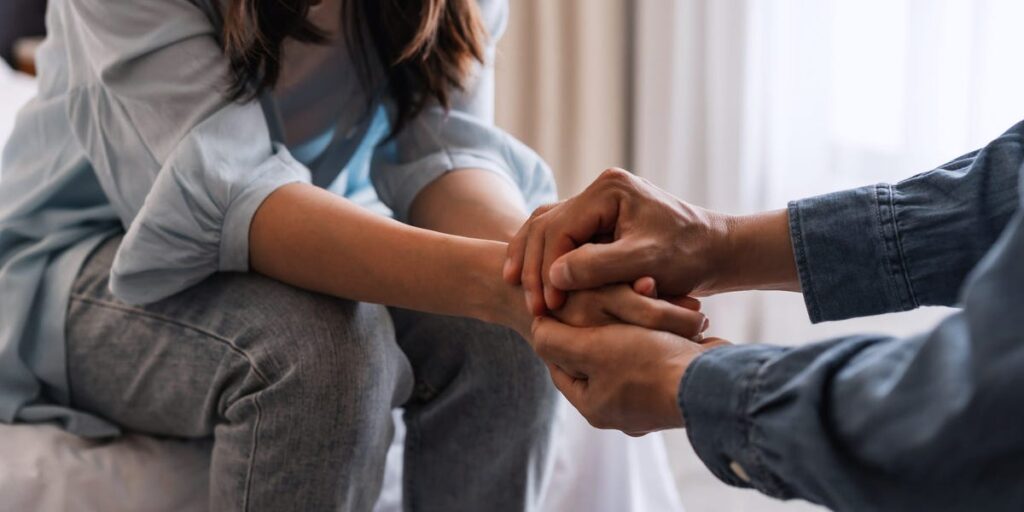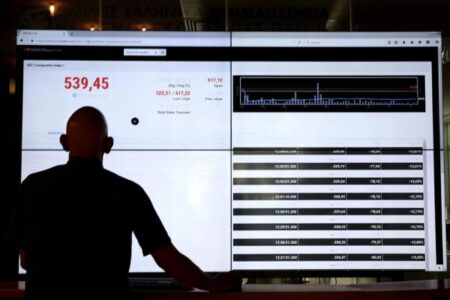As a former divorce lawyer, I’m often something of a Cassandra of Troy of marriage: blessed with an ability to predict marital failure, doomed to an inability to do anything about it.
With an encyclopedic knowledge of red flags, the news that my friend’s husband — who had never shown interest in fitness in his life — had taken up the new hobby of bodybuilding set off all my alarm bells.
A couple of months later, my friend texted me asking to talk. “They’re getting a divorce,” I told my husband before calling her. “You can’t know that,” he reassured me.
I wanted very badly to be wrong; unfortunately, I wasn’t.
They were some of our closest friends
I had known her since high school and had become good friends with him over their eight-year relationship. He and my then-boyfriend, now-husband, also became fast friends, and we all hung out regularly. Both guys integrated perfectly into our friend groups, which were happily expanded as they introduced more wonderful people.
The couple moved to another city during the pandemic, and while we saw them less, the feeling of a chosen family remained. They even officiated our wedding, as we had wanted a happy couple to marry us.
The news of their split hit everyone hard. It seemed like each mutual friend I talked to shamefully admitted, “I know it’s not about me — but I’m really grieving right now.”
He had initiated the divorce, and I was obviously devastated for her, but struggled to understand why I was feeling so personally affected. I couldn’t even really claim that I was blindsided, as for years, I had picked up on small things that worried me.
I reached out to a therapist to help me process my grief
The signs had been there, but the shock and pain of the news stayed for weeks like a lump in my throat. To understand this surprising grief and how to get through it, I turned to Aaron Hui, a therapist specializing in adult relational therapy.
“I think it’s very understandable to feel grief while experiencing a friend’s divorce,” Hui told Business Insider. “There’s loss of the relationship unit and of what the future could have been with the marriage intact.”
According to Hui, such relationships greatly impact friend groups at large. “A new relationship within a friend group is like a new element or catalyst in a larger chemical formula. The element will inevitably change, impact, or shift the group. With divorce or separation, the members may have to renegotiate their relationship not only to the partner that is separating but to the partner’s friends or family,” Hui said.
A friend’s split can make us “think of our own relationship to divorce, changes, and endings in relationships” and bring up feelings of loss, sadness, anger, or betrayal. When it comes to dealing with this grief, Hui says that “taking time to understand how one has been impacted is a helpful opening in understanding the individual, nuanced process of addressing these difficult feelings.”
I was able to move forward
Taking Hui’s advice, I ruminated on what exactly this divorce was bringing up for me. I felt secure in my own marriage, but couldn’t deny that my friend’s ex’s entitled behavior over the years reminded me of my father, who had left my own family.
All of my experiences with them as a couple — vacations, dinner parties, game nights — that had felt like fond family memories now felt tainted and unsafe.
Maybe it’s just that any loss of love hurts; public reaction to celebrity divorces certainly supports that theory. Their love had been a constant in my life. Now it’s gone.
Having identified that loss, I know that the way forward is creating new love.
Our friend group has rallied around our friend and each other, creating a new chosen family built on honesty, empathy, and support. I have faith that healing is coming, though I might still cathartically photoshop a certain someone out of my wedding photos.
Read the full article here
















